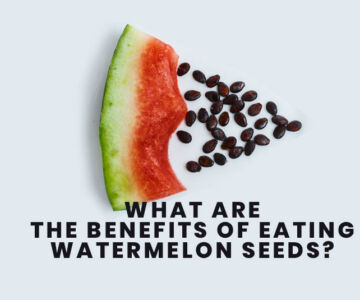 What are the Symptoms of Body Dehydration?by admin / August 5, 2022
What are the Symptoms of Body Dehydration?by admin / August 5, 2022Seven Essential Reasons to Eat Vegetables in Winter
In the midst of winter, blankets become the finest companions for sluggish days and nights. Have you ever wondered why it only occurs during this time of year? Your blood vessels will contract in cold conditions, which restricts blood flow and makes your heart work harder to circulate blood throughout your body. You may experience a rise in blood pressure and heart rate as well as a decrease in circulation as a result. This causes the body temperature to drop, which results in cold. There are some vegetables that come with a lot of health benefits; they can help you stay warm and are readily available to help you combat the seasonal impacts.
Winter veggies are not only incredibly flavorful and fresh, but they also provide all the nutrients the body needs at that time of year. Eating healthy foods provide essential nourishment for our immune systems, which need greater assistance in cold weather to combat any viruses. There are several winter dishes that are readily available and warm you up in the winter. In order to enjoy these winter vegetables, adjust your diet during these months.
Here are 7 essential reasons why you should consume vegetables in winter:
1. Gives you a daily dose of Vitamin A
A strong immune system and healthy vision are both supported by vitamin A. If you take carrots, they come in all different colours and provide 73% of your daily vitamin A needs. The root vegetable also contains beta-carotene, which your body converts into vitamin A and may support the health of your eyes. Carrots can be coated and baked with brown sugar, or they can be used in soups or stews.
2. For Inflammation
In order to combat infection from foreign invaders like viruses or bacteria, your body sends white blood cells to the area of infection, which then results in inflammation. Even though there are no external intruders present, inflammation can still occur and result in swollen or joint discomfort. Add a lot of dark leafy greens and green vegetables to your diet during the winter to help reduce inflammation. For a more effective way to lessen chronic inflammation, it is suggested to consume winter vegetables like kale, collard greens, Swiss chard, and spinach. Enjoy these winter greens cooked in garlic and olive oil.
3. For Healthy Digestion
The significance of preserving healthy gut health is becoming increasingly clear from research. Then include parsnips in your winter wellness programme. Winter root vegetables like parsnips, beets, and carrots are high in fibre, which aids in a healthy digestive system. Bake all three of them together to make a variety of winter vegetables!
4. Get your dose of Vitamin C
Winter vegetable contains half your daily recommended intake of vitamin C in just one cup. Your immune system may benefit from vitamin C while you fight off illnesses. Winter fruits like the guava are rich in minerals and vitamin C. Vitamin C content in one guava is 280%. Guava helps to strengthen the immune system and avoid diabetes. Oranges are one of the citrus fruits with the highest vitamin C concentration. One orange has about 128% of the daily recommended value for vitamin C.
Read Here: Health Benefits Of Vitamin C Food
5. Lowers your blood pressure
Beets can lower your blood pressure. These deep-red root vegetables contain nitrates that are transformed into nitric oxide, a substance that dilates blood vessels and may decrease blood pressure. Beets work well with arugula, goat cheese, and balsamic vinaigrette salad.
6. Promote strong bones
Turnips, a close relative of broccoli, are a delightful root vegetable that offers a wealth of health advantages. Turnips are a supply of vitamin K that supports healthy bones. The turnip greens and roots also include other important minerals like vitamin A, vitamin C, folate, copper, and manganese. A terrific side dish for a warming winter supper is roasted turnips.
7. Boost your mood
Pumpkins might be considered the unofficial vegetable of the fall season. This vibrant winter squash can also be able to lift your spirits. Pumpkin seeds contain tryptophan, a vital amino acid that may help reduce insomnia and anxiety. By roasting pumpkin seeds that have been peppered with a few dashes of cayenne pepper, you can make a nutritious snack with a kick.
Conclusion:
We constantly seek out soothing foods during this time of year that can keep us warm during the chilly winter. It’s time to stock your kitchen cabinets with nutritious winter vegetables and green leafy vegetables that are a rich source of minerals for your loved ones and family. But you can’t keep your family healthy if you don’t know about these winter vegetables. Winter provides a tonne of greens, which are really nutritious. Even in the winter, there are some plants that can keep you warm. So go ahead & stock it up!
FAQs
1. What is the importance of vegetables?
Vegetables help in preventing several diseases, it supplies energy to our body and also provide essential nutrients.
2. Which vegetable is good for winter?
Fenugreek leaves, carrots, green peas, beetroot, green garlic are some of the vegetables good for winter.
3. Can we eat non veg in winter season?
Yes, you can eat non-vegetarian food during the winter season. It will help in increasing your body temperature.



